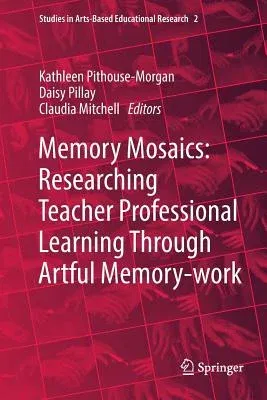This book communicates new voices, insights, and possibilities for
working with the arts and memory in researching teacher professional
learning. The book reveals how, through the arts, teacher-researchers
can reimagine and reinvigorate moments of the past as embodied and
empowering scholarly experiences. The peer-reviewed chapters were
composed from juxtaposing unique "mosaic" pieces written by 21 new and
emerging scholars in South Africa and Canada. Their research explores
diverse arts-based practices and resources including collage, film,
drawing, narrative, poetry, photography, storytelling and television
alongside related ethical issues. Critically, Memory Mosaics also
demonstrates how artful memory-work can engender agency in professional
learning with teacher-researchers taking up pressing issues of social
justice such as inclusion and decolonisation. Overall, the book offers a
multidimensional, polyvocal exploration of how artful memory-work can
bring about future-oriented professional learning enacted as pedagogies
of reinvention and productive remembering.
Memory Mosaics: Researching Teacher Professional Learning Through
Artful Memory-Work, by Kathleen Pithouse-Morgan, Daisy Pillay, and
Claudia Mitchell, along with teacher-researchers on two continents, is a
ground-breaking book. It models a collaborative approach to arts-based
research that melds memory-work, visual and poetic arts, and reflective
practice to promote professional learning, personal transformation,
decolonisation, and a more just future. Like colourful pebbles and bits
of glass, the authors place teachers' self-stories in relation to one
another in an artful design, creating thematic coherence that evokes a
deep sense of knowing. Judith C. Lapadat, Professor Emeritus, Faculty
of Education, University of Lethbridge, Canada
**
**
Memory Mosaics: Researching Teacher Professional Learning Through
Artful Memory-Workassembles exemplars of professional learning in an
intriguing mosaic format. A topic is introduced, followed by
memory-pieces; then: discussion and/or creative response. This lively
juxtaposition generates momentum for highly productive forms of
remembering around social justice issues, even as the reader is invited
into an intimate circle of shared concern: for these issues, with these
(and other) teacher-researchers. It is a beautiful, original, and
practical book. Teresa Strong-Wilson, Associate Professor, Faculty of
Education, McGill University, Canada


